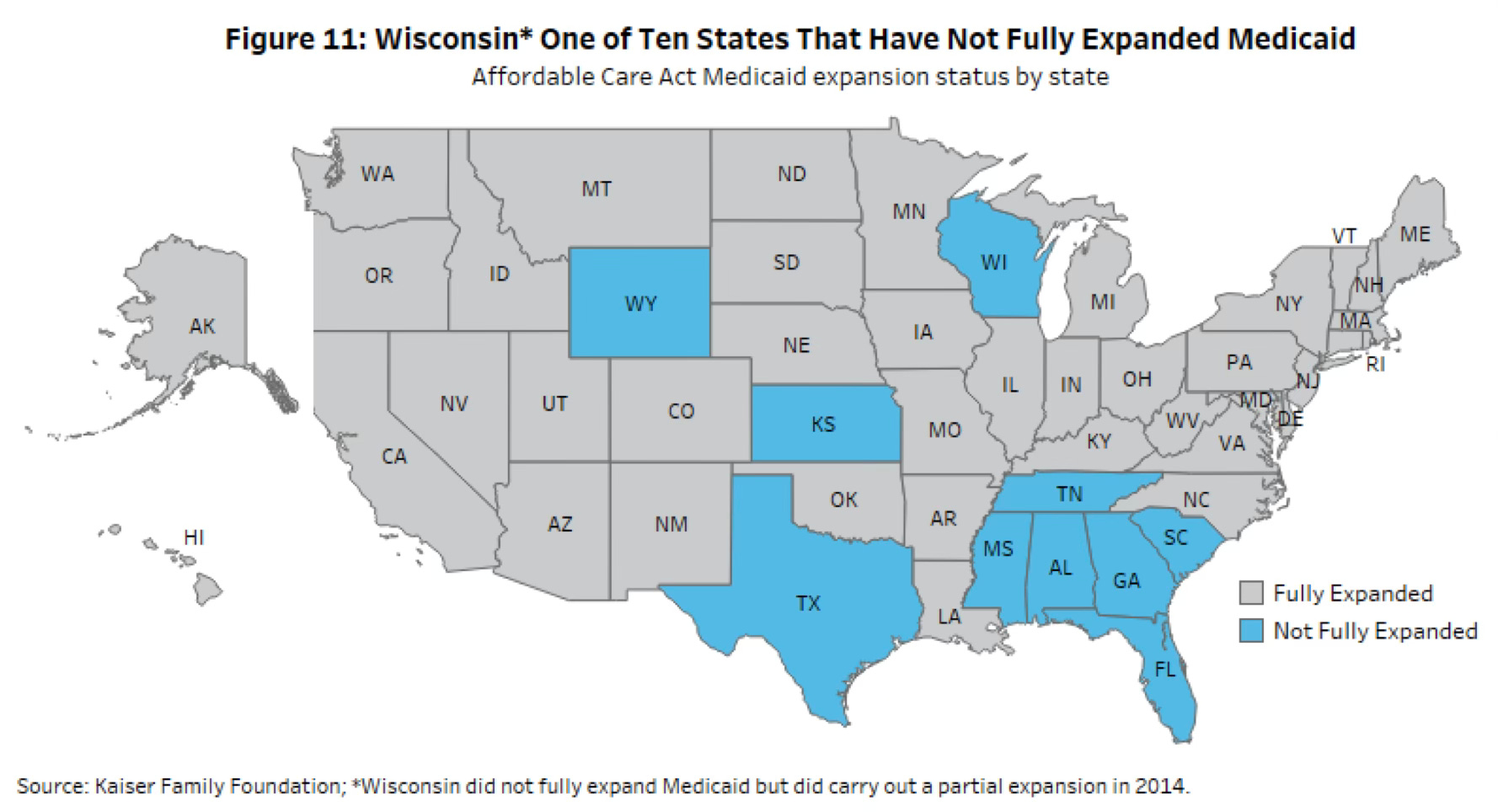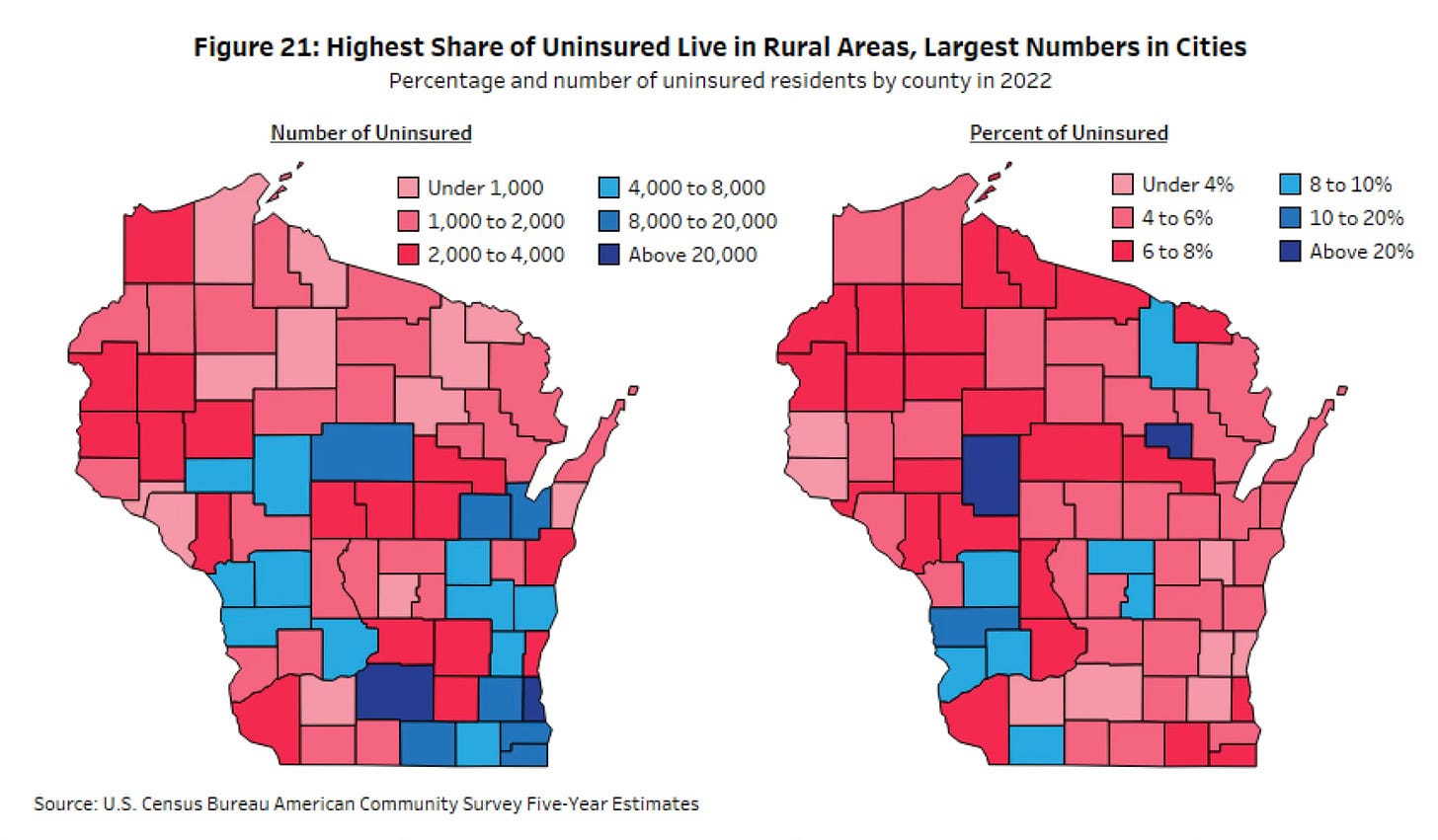Op-Ed
“In the past 10 years, Wisconsin has spent an extra $2.4 billion dollars for worse coverage. It doesn’t have to be this way. ” Guest column by Shawn Phetteplace of the Main Street Alliance.
This column is from The Recombobulation Area, a weekly opinion column and online publication founded by Dan Shafer, now part of the Civic Media network. Learn more about The Recombobulation Area and subscribe here.
In 2013, Gov. Scott Walker rejected BadgerCare expansion, stating at the time that the goal “is to get more people out into the workplace, more people covered when it comes to health care, and fewer people dependent on the government—not because we’ve kicked them out, but we’ve empowered them to take control of their own destiny.”
He explained that expanding Medicaid to adults up to 100% of the poverty line — a $15,060 annual income for an individual — and directing those from 100-138% to the ACA marketplace would be the best hybrid solution.
He was wrong.
A recent Wisconsin Policy Forum study titled “The Picture of Health? Considering Medicaid Expansion in Wisconsin” clearly lays out why the approach failed. If Wisconsin were to join the 40 other states that have taken the expansion — including many GOP-controlled states — state taxpayers would save $1.4 billion dollars over the next two years. About 90,000 Wisconsinites would be eligible for coverage under the expansion.

Some portion of those folks would be eligible for coverage, and others would be able to get better quality coverage in BadgerCare than in the Affordable Care Act marketplace — where out-of-pocket costs, deductibles and other costs can make the coverage less useful for families.
Let’s take two arguments that Scott Walker, and now Speaker Robin Vos, have made to oppose BadgerCare expansion. First, they claim the federal government would change the formula and Wisconsin would have to pick up the tab. This hasn’t happened, either during Democratic or Republican Presidential administrations. It continues to be unlikely, as Speaker Mike Johnson has an extremely narrow majority. Now that a decade has passed, let’s put that argument to bed.

Second, proponents of this approach argue they aim to reduce dependence on government programs, framing their stance as a push for independence from “welfare” or “socialized medicine.” This argument collapses under scrutiny. The subsidies in the marketplace — the very mechanism their hybrid “solution” relies on — are also funded by taxpayers. It’s taxpayer money either way, but expanding BadgerCare is actually more cost-effective for Wisconsin taxpayers. In reality, their ideological stance prioritizes rhetoric over fiscal responsibility, making the case for expanding BadgerCare even stronger.
In the past 10 years, Wisconsin has spent an extra $2.4 billion dollars for worse coverage. It doesn’t have to be this way. Lawmakers should come together and get this done in the upcoming biennial budget.

Here’s why expansion of BadgerCare would be good for small businesses.
Main Street Alliance, where I serve as National Campaigns Director, represents more than 2,000 small business owners across the Badger state. In our polling, meetings and engagements in every corner of Wisconsin we hear the same refrain: “What are we going to do about healthcare?” Small business owners find it very difficult to access affordable group coverage for their staff. Small business owners pay more for health insurance than big businesses, according to a recent study by the Commonwealth Fund.
TJ Semanchin, owner of Wonderstate Coffee and MSA Member recently shared that when getting the business started, he and his family were on BadgerCare. This underscores an important point. Many people who would like to start a small business don’t. Why? Because of healthcare costs.
Countless families across Wisconsin have a spouse stay in a corporate or government job to have access to the benefits the family needs to be able make ends meet. Many entrepreneurs slow-walk their business by holding down a 9-to-5 while running their business outside of their primary gig, and many Wisconsinites don’t start businesses because they worry about what would happen if they got sick.
The spirit of entrepreneurship drives this great state, and increasing BadgerCare to include 138% of the poverty line would keep it pumping. It could give way to a job creation boom and entrepreneurial renaissance.
BadgerCare expansion is a small business issue. By ensuring affordable healthcare for entrepreneurs, Wisconsin can unlock innovation and amplify its renowned work ethic.
So, Speaker Vos, let’s come together to pass Badgercare expansion to support Wisconsin’s small businesses. It’s about time.
Want to get Badgercare expansion done? Call, write and post on social media why you support it. You can look up who your Senator and Representative are here. You can find contact information for your elected officials here.
Want More Local News?
Civic Media
Civic Media Inc.
The Civic Media App
Put us in your pocket.
